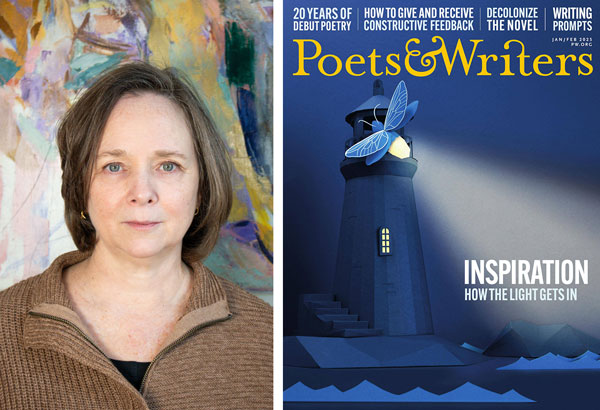What does it mean to be a resource for a community of writers? That’s a question the leadership at Poets & Writers has asked itself since it was founded in 1970. And wouldn’t you know it, the answer is a little different in 2025 than it was more than half a century ago. That’s why the long-running literary nonprofit and bimonthly magazine announced some major changes earlier this year, including an updated app, a members-only newsletter, and an expansion of Poets & Writers Groups, a platform where writers can connect with one another.
Those changes, said Poets & Writers executive director Melissa Ford Gradel, have been in the works for longer than one might expect. “We conceived and launched the membership program quickly—over about a year,” she said. “But we’ve been working on some of the components for much longer than that. We were looking to expand on the two core things writers count on us to provide: trustworthy information about the business and connection to the literary community.”
In a letter to subscribers explaining the changes, Gradel struck a candid tone about the cost of the improvements, announcing plans to discontinue discounted subscriptions to the print magazine. Speaking with PW, she attributed some of those decisions to changes both technological and cultural. “Shifts in the larger media and social media landscapes were influential: the dominance of digital content, the widespread acceptance of online programming following the pandemic, and changing attitudes to the benefits of online community,” she said.
“We want our editorial content to be available and useful to people in all the ways they are accustomed to engaging with content—on their phones and other screens, as well as in print,” she added. “And we want to create an online space that has guardrails so that writers—especially writers who hold historically marginalized identities—feel safe building connections and sharing work on the platform.”
Poets & Writers has long been invaluable to its namesakes at all points in their careers, from emerging voices to some of the literary world’s most prominent figures. Rebecca Makkai, author of the novels The Great Believers and I Have Some Questions For You, recalled her own experience with the magazine during her early years as a writer. “When I was in high school, the faculty leaders
of the writing club would bring in issues, and we’d go through them for contest deadlines and youth opportunities,” Makkai recalled.
“I understood that this magazine was like the New York Times for writers: the place where you could learn everything that was going on in the writing world. So many of the journals and places and things that would become key parts of my writing life decades later—Bread Loaf, Yaddo, the Iowa Review, the Pushcart Prizes—I first read about in those pages.”
Years later and still a dedicated reader, Makkai logged in to Poets & Writers Speakeasy—one of the nonprofit’s early experiments in online community-based platforms—to ask a fateful question that had a big impact on her career to come. “I have this very clear memory of logging on, typing with my left hand because the baby was asleep in my right arm, and posting my first question, which was something like, ‘I have a three-month-old baby and I haven’t written anything in three months and I don’t know how anyone does this,’ ” she said. “Within hours, I had so many responses from writers I’d never met, telling me to go easy on myself, reminding me that a baby is only a baby for, like, nine months, talking about coming out on the other side.”
While that forum is now defunct, Makkai said she sees reflections of it in Poets & Writers’ new and improved Groups platform. Indeed, Gradel noted that she and her staff took care to ensure that all updates to the nonprofit and its programs were rooted firmly in
its history.
Gradel pointed in particular to the organization’s digital database compiling the listings of award, fellowship, and grant opportunities its originally publishes in print, which she said is “in many ways the spine of Poets & Writers magazine.” Among added enhancements to those listings are a members-only newsletter, which surfaces impending deadlines and provides tips for entering writing contests, and Mapping the Maze, a series of online workshops intended as “an orientation to using these resources to get published.”
Gradel sees Mapping the Maze as the entry point for a larger array of online courses. “We’re identifying great instructors by drawing on our wide network of relationships with authors and publishing professionals,” she said, and “foregrounding BIPOC publishing professionals, to make sure that we address the needs of BIPOC writers.” She added that, “while we offer these classes online, they are not webinars. We don’t record them. Participants must show up and participate, because that’s where the value is.
It speaks to our belief in the importance of community in a writer’s life.”
For Makkai, that emphasis on community is key. “Not everyone has an MFA, not everyone lives in Brooklyn,” she said. “Online community is what keeps so many people going, and I honestly don’t know if I’d have a career without that first one.”
A version of this article appeared in the 05/19/2025 issue of Publishers Weekly under the headline: Poets & Writers Revamps
